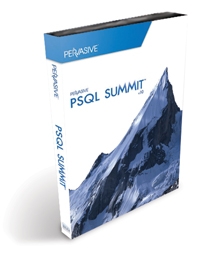
Microsoft Vista and Pervasive PSQL
With Microsoft's release of the Vista operating system, many people have asked us about support for the Pervasive database products on this platform. There are two answers, a long one and a short one.
The Short Answer
Pervasive PSQL Summit v10 was designed with Windows Vista and Server 2008 compatibility from the ground up. This means that this release should install with few problems right out of the box.
Pervasive PSQL v9 was released before Microsoft released Vista, so while it is technically supported, there are some known issues (with documented workarounds). We advise you to read Pervasive's White Paper entitled Pervasive PSQL v9 Compatibility with Windows Vista for the complete answer.
The Long Answer
We are still working on the long answer as we work with the Vista OS, so expect this to get longer over time!
- Editions: There are many different versions, or "editions" of Windows Vista. The Pervasive Workgroup Engine is supported on ANY of the editions , which makes it easy. The Pervasive Client is supported on all editions except for Windows Vista Starter. The Pervasive Server Engine is supported on any "business" platform, which excludes Starter, Home Basic, Home Premium, Home Basic x64, and Home Premium x64.
- 16-bit Applications: Older Win16 applications are not supported on Vista any more. If you have any 16-bit application, you'll want to stay on Windows XP. Further, we have seen problems running old 16-bit DOS applications on Vista64 as well, causing us to have to rewrite a bunch of old tools.
- File Virtualization: Applications that store files in certain locations (C:\Windows, C:\Program Files) will still continue to work. However, if you application intends to SHARE access to data in these locations, then you need to be aware of some limitations. Each non-administrator user gets their own "virtualized" path to these locations, where files are not written there, but rather to the \Virtual Store directory structure instead. This means that if one user updates a file in C:\WINDOWS, another user will NOT see that file or its changes, unless specific permissions have been granted.
- Registry Virtualization: Just like with the files, Vista also virtualizes the Registry for the HKEY_LOCAL_MACHINE registry key, allowing each user to have their own "virtual" registry instance. Again, when sharing data, this can cause problems, and it can even cause confusion for the administrator!
If you have additional questions about the product, please contact us!
|

